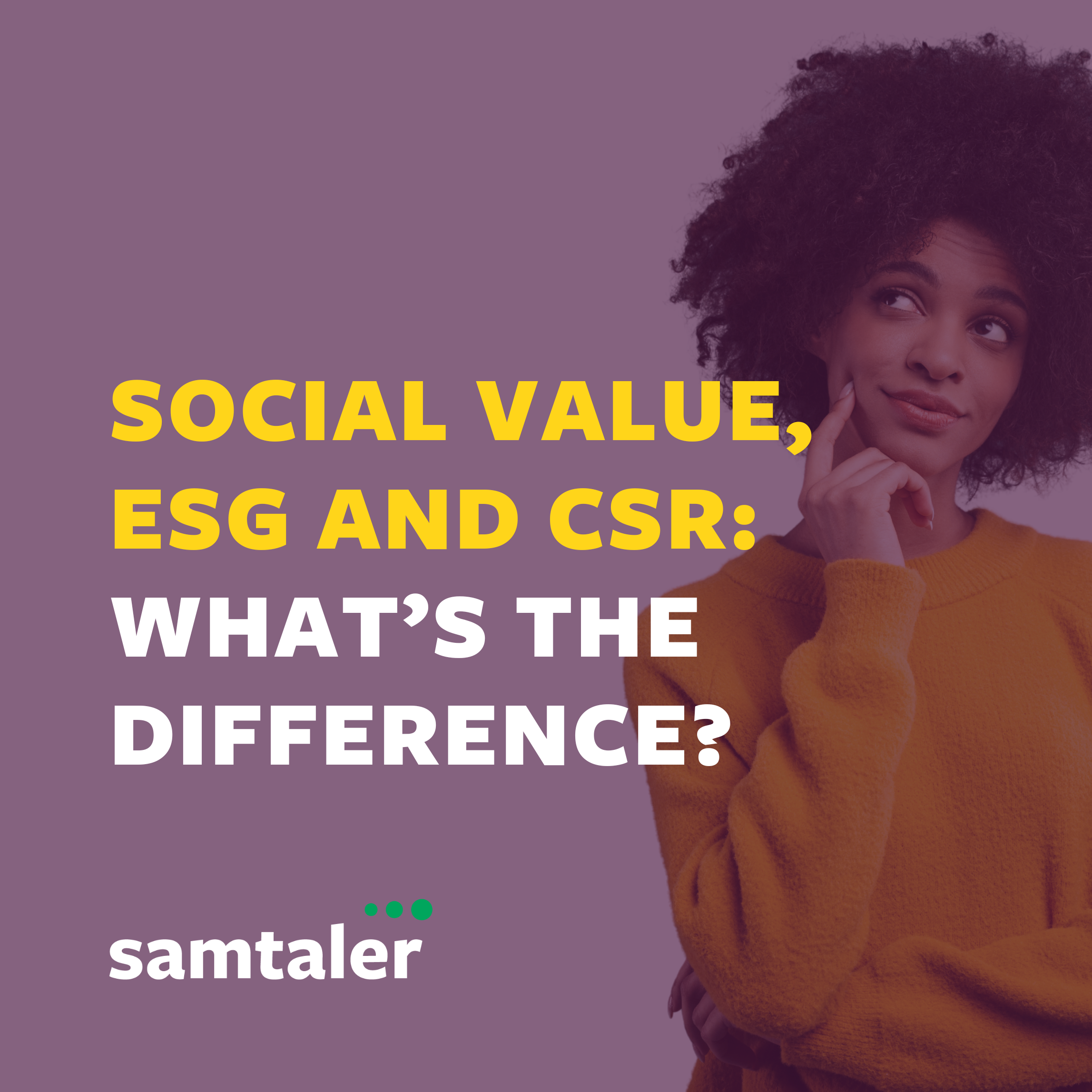
Social Value Hub
Welcome to the space where we share thoughts, insights, and practical ideas to create social value.

5 mins with Helen Longfils- Group Director of Social Value, Mitie
In this episode, Helen Longfils of Mitie shares how social value strategy works in practice, from theory of change and inclusive jobs to delivering measurable impact at scale.
Social value, ESG and CSR: What’s the Difference?
Confused by social value, ESG and CSR? Learn the key differences, how they overlap, and which approach matters most if you work with the UK public sector.
5 mins with Kathy Walker Co-founder and CEO, StartUp Sherpas
In this 5 Minutes With Kathy Walker, Co-Founder and CEO of StartUp Sherpas, she discusses bridging the skills gap between education and employment. She explores paid remote work experience, scalable edtech, and how employer-led challenges build confidence, creativity and real-world work readiness in young people.
UK Apprenticeship Overhaul: What are the changes and how will they impact your social value offer?
Discover how the UK’s apprenticeship overhaul impacts social value commitments in procurement. From levy changes and wage increases to new funding flexibility and shorter apprenticeship options, these reforms have reshaped how businesses integrate apprenticeships into their bids.
Social Value Strategic Briefing Note: Keep Britain Working
Samtaler explains the UK Government’s “Keep Britain Working” review and what it means for employers. Discover the new workplace health expectations, upcoming policy changes, and the actions Strategic Suppliers should take to support workforce wellbeing and future procurement readiness.
Domestic Abuse in the Workforce: New Expectations for Employers
Explore how the updated Social Value Model places domestic abuse at the centre of public procurement, and learn what action employers must take.
Nine Budget Changes that will impact on Social Value Delivery
With the Budget news dominated by stories about blunders and child benefit caps we decided to look behind the news headlines to spot announcements that we think will impact Social Value Professionals over the following months.
WATCH NOW: Smarter Social Value - The Human Future of AI, Local Needs and Impact
WATCH NOW: Smarter Social Value – The Human Future of AI, Local Needs and Impact.
Dr Richard Milburn, Visiting Lecturer, King’s College London
In this 5 Minutes With Dr Richard Milburn, Visiting Lecturer in War Studies at King’s College London, discusses his work connecting conservation, peacebuilding and behavioural science. He explores “corkscrew thinking,” gamified learning through Tunza Games, and innovative ideas for delivering social value.
The Social Value Model: What Buyers Must Do and What Suppliers Should Watch For
Discover the ‘four golden rules’ Public Sector Buyers must follow under the UK Social Value Model, and what every supplier needs to do to stay compliant and competitive.
Complete Guide to the New Social Value Model
The Social Value Model is central to government procurement but it’s often misunderstood. This Guide explains what it is, why it matters for bidding and how organisations can use it to strengthen proposals and deliver real impact.
What Is The Social Value Model?
The Social Value Model is central to government procurement but it’s often misunderstood. This blog explains what it is, why it matters for bidding and how organisations can use it to strengthen proposals and deliver real impact.

Social Value Assessment
Curious how your organisation measures up?
Take our quick, no-obligation assessment to uncover opportunities to strengthen your social value strategy. In just a few minutes, you’ll get insights into how you're doing across key areas like strategy, practice, resourcing, and procurement and where there’s room to grow.












